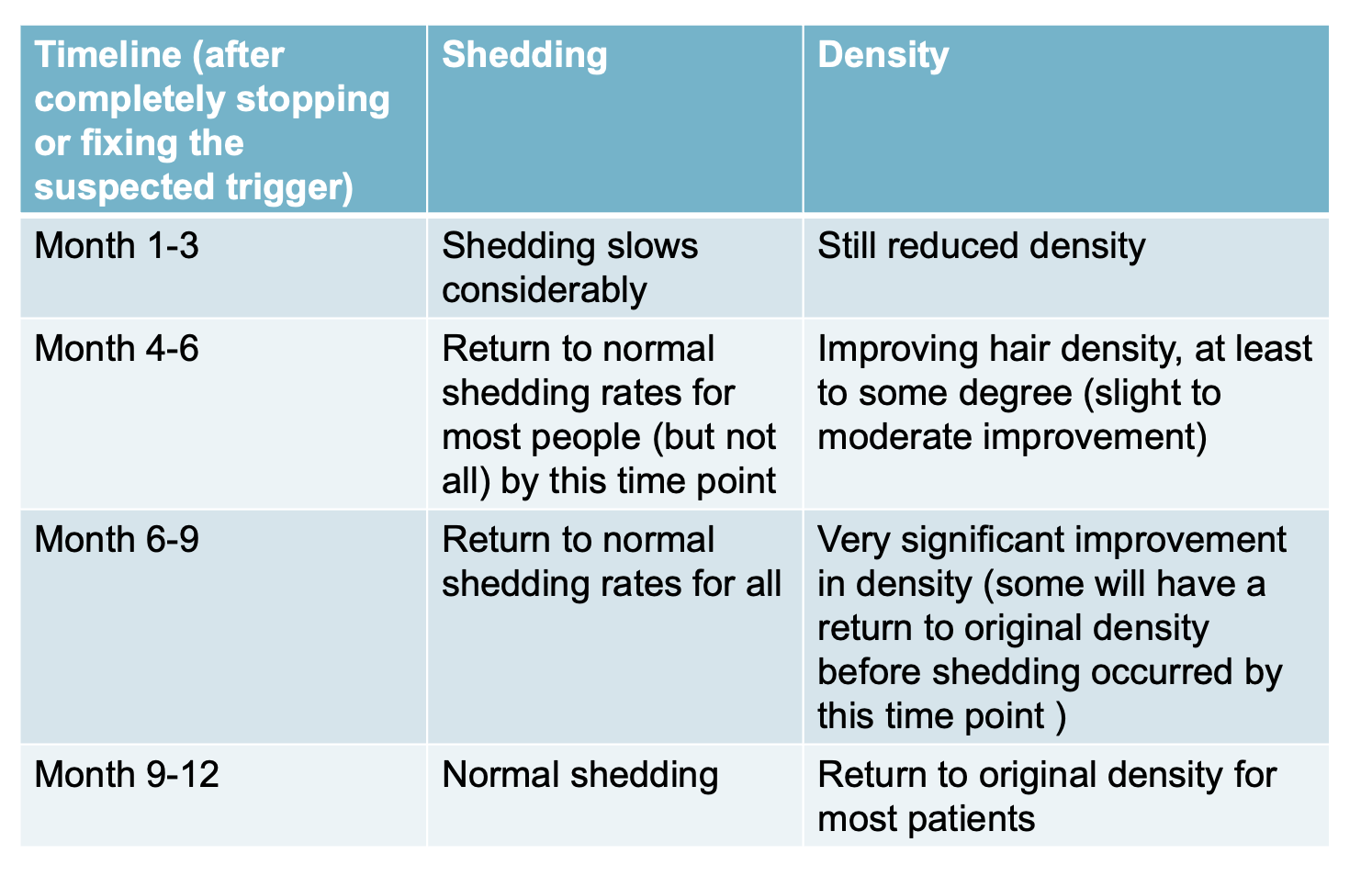How long does it take for shedding to stop once you've corrected the trigger?
How long does it take for hair shedding to stop ?
I’ve selected this question below for this week’s question of the week. It allows us to review some concepts in telogen effluvium.
Question
I think I have telogen effluvium from a drug I took. I have now stopped the drug and so it’s going out of my system. How long does it take shedding to stop once a person has found the right trigger and stopped it? I’ve heard it takes 9-12 months. Is that true?
Answer
Thanks for the question.
Shedding stops far sooner that this if truly you’ve found the right trigger. In fact, shedding should start really slowing down in 1-2 months and be quite back to normal rates of shedding by month 6 at the latest (but probably month 3-5 for most patients). There are many many patients that note that shedding seems to “shut off like a tap” when a person has really found the right trigger.
It’s important not to confuse two things:
1) The timeline for the hair shedding to slow.
2) The timeline for the hair density and thickness to come back.
These two timelines are not the same!
It takes a matter of months for the shedding to slow but it takes about 6-9 months from the time of stopping the trigger for hair density to really be growing in nicely. In other words, there will be many months where a patient will say “Ok, my shedding stopped but my hair is still so thin.” This is followed by a period where the patient notes that not only is shedding remaining low but hair thickness and volume is coming back.
I have outlined some of this timing below:
Summary
To summarize. it will take up to 6 months for shedding to return to normal once the trigger is fixed. For many patients, the shedding stops much sooner than this. It’s usually just a matter of a few months before shedding is back to the normal expected rates and for some it’s a matter of weeks rather than months. If shedding is not stopping after 6 months, one really should ask themselves?
a) do I really have the correct diagnosis?
b) do I have the correct diagnosis - but have I missed another diagnosis that is also present?

